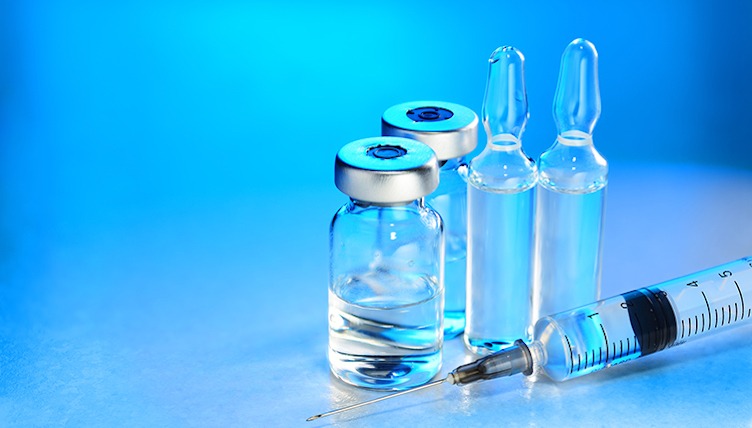Industry Roundtable: Parenteral Drug Manufacturing
What is driving growth in the CDMO/CMO market for parenteral drugs, and what is the outlook for 2021? An industry roundtable weighs in on key trends, including the impact of increased demand for COVID-19 projects.
An industry roundtable
To gain a perspective on the key issues shaping the CDMO/CMO market for parenteral drugs (drug product side), DCAT Value Chain Insights gained the input of several CDMOs/CMOs. Participating in the roundtable were: Bert Barbosa, Vice President of Drug Product Manufacturing, Ajinomoto Bio-Pharma Services; Antonella Mancuso, Vice President and Chief Operating Officer, BSP Pharmaceuticals, and Maria Elena Guadagno, Business Director, BSP Pharmaceuticals; Pascal Villemagne, Vice President, Commercial, and President, Riom Drug Product Site, Carbogen Amcis; Fabio Stevanon, Director, Global Injectables Platform, CordenPharma International; and Dr. Claus Feussner, Senior Vice President, Development Service, Vetter Pharma-Fertigung GmbH & Co. KG
Current market, growth drivers, impact of COVID-19
From an industry view, how would you characterize the CDMO market for parenteral drug development and manufacturing? What factors have been driving growth? How has increased demand for projects (vaccines and therapeutics) for COVID-19 impacted the market?
 |
|
Dr. Claus Feussner |
Feussner (Vetter): We experience a pharma industry continuing to move toward biotechnology with 55% of the total top 100 product sales predicted in 2026. The primary driver of this global biopharma market surge is parenteral products. Their share of the global market is expected to grow from 52% in 2019 ($604 billion) to 55% in 2026 ($1,206 billion), outpacing other routes of administration (Source: Global Data Sales Analytics, June 2020). The orphan drug sector is especially expected to outperform the market, nearly doubling in size in the period 2020–2026 with a compound annual growth rate (CAGR) of 11% (Source: Evaluate Pharma World Preview 2020, July 2020).
Regardless of this positive development, today’s parenteral products have to factor in a variety of different innovations, thus adding another dimension of considerable importance that must be dealt with, and that is production complexity. For biopharma companies with injectable products, the choice of the right strategic production partner is both valuable and critical at the same time. Clinical and commercial teams do not only need a service provider that manages their product manufacturing. They also need production experts who can provide multi-dimensional technical expertise while in addition offering tailor-made solutions and market foresight.
Stevanon (CordenPharma): The demand for parenteral drug development and manufacturing is keeping a positive pace as seen in the last few years. The different factors influencing parenteral drug development and manufacturing growth include: the search by pharma and biopharma companies for sourcing sites approved by major authorities (mainly the US and European Union [EU], and to a lesser extent, Japan, China, Brazil, Russia); the need to address patent expiry in both traditional pharmaceutical drugs as well as biologics; decisions to reshore manufacturing into the EU and US by some pharma customers; the increase in COVID-19-related [project] requests for formulation/fill–finish (for vaccines or supplies of other critical medications); or simply the reallocation of drug products and projects to CDMOs to free up internal capacity for COVID-19-connected drug production.
Based on this last driver, we recognized in early 2020, the increased demand/search for COVID-19-related projects, specifically for aseptic fill–finish capabilities within a CDMO sourcing site, which is fully ready or partially compatible to accommodate various categorized drug classes, including biologicals, virus-derived containment capability, cold-chain handling, processing capability, etc.
 |
|
Bert Barbosa |
Barbosa (Ajinomoto Bio-Pharma Services): We’re seeing growth of the CDMO market for parenteral drug development and manufacturing surpassing the industry’s growth. This trend is being driven by an increasing number of emerging biopharma [companies] that are developing products through late stage and requiring CDMO support. Additionally, an increase in targeted, potent, and orphan drugs, the continued growth of the biologic API [active pharmaceutical ingredient] market, and the current focus on COVID-19 projects is helping drive growth for parenteral development and manufacturing at CDMOs.
While COVID-19 projects have increased demand for parenteral development and manufacturing, we initially saw a slowdown in clinical trials due to the impact from COVID-19, shifting the focus away from targeted, potent, and orphan-drug development and manufacturing, which are starting to resume to pre-pandemic levels.
Villemagne (Carbogen Amcis): I would characterize this market as extremely healthy and always full of opportunities. We have the privilege of being one spared by the health crisis around COVID-19, and, moreover, we still see a high level of demand for clinical batches. While many large vaccine capacities are focused on mass supply, injectables are still on the rise in therapeutic areas such as oncology. It is not easy to make a direct and particular link between the global demand around the production of vaccines against COVID-19 and the increase in demand that is reaching us in other therapeutic areas. However, the installed capacities being roughly identical between January 2019 and 2020, it is not incongruous to think that a certain tension on the production capacity of injectable products exists in the face of the global demand for vaccines, consequently influencing the richness of our pipeline in clinics.
 |
|
Antonella Mancuso |
Mancuso and Guadagno (BSP Pharmaceuticals): As Pharma continues to evolve toward specialty drugs and complex biologics, the sector will need a wider range of development capabilities and increased manufacturing capacity to speed up entry to the market. CDMOs have established themselves as viable alternatives to the in-house development and manufacturing units of pharmaceutical companies over recent decades. The CDMO market’s trends have recorded significant and continuous growth in the last 10 years either for traditional non-injectable products and for innovative ones as injectable biotech products. The constant contribution from innovative research as well the growing demand for new drugs to meet patient’s expectations for new therapies is driving the pharmaceutical industry in its consistent expansion on new capacities and capabilities.
 |
|
Maria Elena Guadagno |
While solid dosage forms have long been the largest segment, sterile products are currently facing the strongest growth, taking up an increasingly large share of the pharmaceutical development and manufacturing outsourcing market. The high growth in sterile products is mainly driven by biotech products that require complex capacities in the CDMO market.
An example of this growth is from antibody drug conjugates (ADCs). The overall market value of ADCs in 2019 was about $2.5 billion, and it is expected to grow over $15.8 billion in 2030, at a cumulative annualized growth rate (CAGR) of 18% in the base case forecast scenario (the CAGR of the overall market is 7% compared to 18% for ADCs).
In this scenario, projects for COVID-19 became top priority for all those companies working to develop vaccines or therapeutics and forced them to change their strategy on product sourcing with an increased demand to CDMOs either for COVID-19 or non-COVID projects. The pandemic is forcing companies to develop or consolidate a robust continuity business plan for their products to assure continuity of supply [by having] enough capacity for their needs and considering the geographic distribution of their source with potential need for multiple and back-up partners. Worldwide needs and the request for anti-COVID-products increased dramatically the demand for manufacturing capacity, driving CDMOs to make available huge capacity in a short period by revamping existing lines and investing in expanding their facilities to be ready for this dynamic situation.
Outlook for 2021: production capacity and technology
What do you see as the key trends/issues impacting the market in 2021? From a production capacity view? From a technology view?
 |
|
Fabio Stevanon |
Stevanon (CordenPharma): In 2021, a consistent part of the parenteral market capacity will continue to be allocated to COVID-19-related drugs. This challenge will be solved either via a reallocation of existing capacity from other drugs or by bringing on new line capacity. The key constraining factors for accommodating capacity expansion in both pandemic-related and non-pandemic-related drugs as seen in 2020 are: (1) lead times for critical (complex) equipment, such as aseptic filling lines, automatic inspection systems, and customized packaging systems (including track-and-trace steps); and (2) lead times to fulfill the strong increase for packaging, especially for vaccines and therapies related to the COVID-19 pandemic, with a growing shortage situation specifically for glass vials, rubber-closures, glass pre-filled syringes, and single-use-systems largely used in biologicals and virus-derived formulation steps.
Barbosa (Ajinomoto Bio-Pharma Services): Logistics, quality, and sustainability in manufacturing will continue to be the trend for 2021. Lead times for components’ supply-chain interruptions are still a factor for the industry. We expect to see this trend to reverse as the industry finds a way to ensure access to critical raw materials and components and materials become more accessible. Quality systems and continuous improvement remain a necessity for CDMO operations. We anticipate that an increased focus on sustainability, reducing waste, and protecting the environment will play an even larger part in the CDMO industry over the next few years.
From a production capacity perspective, as clinical trials resume, we expect to see a return to pre-COVID demand for outsourced parenteral manufacturing, which means capacity in the industry, will continue to be full. From a technology perspective, we are seeing an increase in automated and closed manufacturing systems that reduce operator exposure and reduce human interventions.
Feussner (Vetter): First and foremost, of course, is the COVID-19-pandemic. As such, 2021 will be dominated by transition as work and private life has changed due to the pandemic situation. Within a short period of time, along with our customers and suppliers, we have moved largely from being at work within our sites to remote working when the employee is not required to be on the lab or manufacturing floor. Throughout Vetter, huge efforts were made into the technologies that enable us to work and communicate virtually. While this new situation and working environment brought some initial and unfamiliar challenges and issues, the new normal also presented tremendous new opportunities such as the possibility to prove that it is still possible to be a trusted partner and perform successfully, even when the situation changes.
 |
|
Pascal Villemagne |
However, the year 2021 and possibly future years will challenge the global supply-chain functionalities, which will, in consequence, have an impact on individual supply-chain strategies of market players.
From a product point of view, regardless of the pace in market growth, successful new parenteral medications still require a clear and thorough accounting of clinical, commercial, logistical, and operational factors. It is these requirements that will determine a product’s pathway to success. Thus, it is critical that market requirements are specified and agreed-upon early on. Equally critical concerning the drug substance and its mechanism of action are the target product attributes and its commercial goals, as well as, obviously, the injectable delivery system that will be used to administer the new treatment.
Over the course of the various development project discussions with our customers, we have observed a steady transformation in the lifecycle goal of medications. This approach has led to a meaningful realignment of priorities for new drug products, including the manner in which they must evolve during the span of their lifecycle. And, while potency and efficacy of the drug substance itself still remain vital, the shift in patient needs and expectations now drives the need to expand and improve the patient-friendliness of all product attributes. Patient centricity will continue in its importance and become even more central to the business. In this context, pharma and biotech companies look for partners with the ability to improve efficiency and provide the level of consultation that enables complex drugs to reach the market quickly and reliably in a patient-friendly drug-delivery method rather than provide a type of standardized service.
Villemagne (Carbogen Amcis): There is no doubt that 2021 will be a challenge for all facilities that produce vaccines since everyone is focused on reaching the target volumes to complete the first and largest global vaccination campaign. The tension in this sector will still remain very high, so CDMOs will certainly contribute to the adjustment variable in this complex equation. The main players are all already at the maximum of their possibility, so production grants will have to multiply. Having said that, a number of other productions are due to take place and a large number of new drugs are expected to arrive in clinics or on the market in this interval. Will units under construction be completed more quickly to respond to these requests? It remains to be seen. Once, again, we will have to be patient, but, suddenly, flexibility and speed of change will be the differentiator. In any case, it is our bet at Carbogen Amcis, with the installation of lines offering a large number of possible formats, as well as the possibility of quickly switching from a manufacture of vials to pre-filled syringes, we will be ready to take up the challenge.
Mancuso and Guadagno (BSP Pharmaceuticals): Although the COVID-19 pandemic had a negative impact on several clinical studies of innovative products, slowing down or postponing the original planned activities for new first-in-human programs, it did not equally affect advanced or late-stage clinical programs for which we have been requested to consolidate and confirm long-term supply agreements.
Pharma companies are looking for a ‘partner’ rather than a supplier. A partner with a solid financial position that never compromises business continuity, operating in a world-class technology and quality system capable to meet the rules of the most demanding regulatory agencies with a great attention to the environment, health, and safety. All those CDMOs (like BSP) that already planned and were already expanding their capacity for injectable products are now in the best position to actively manage these new challenges and react to this increase of demand by offering qualified and technologically advanced facilities for the market’s new needs. [In addition], we strongly believe that biologic compounds will play a significant role in generating new therapies for oncology, immune system, and central nervous system diseases and provide new solutions for a wide number of patients. At the same time, innovative compounds need world-class technology, expertise, and facilities designed to assure flexibility and compliance to the highest quality requirements.







